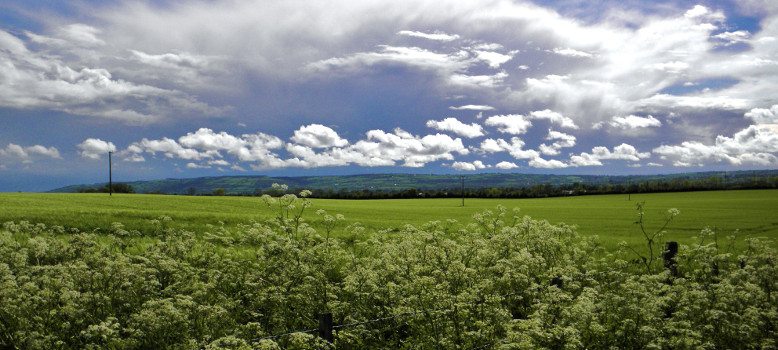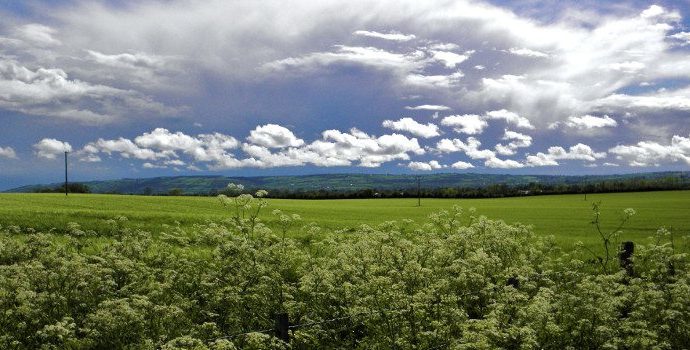Environment Council Report July 2022

- Activity since last National Council
- IFA initiated a national campaign for the sectoral emission ceiling for agriculture to be set no higher than an equivalent reduction of 22%. Under the Climate Action and Low Carbon Development (Amendment) Act 2021, the Government is required to set sectoral emissions ceilings for each sector of the economy.
- The Climate Action Plan provides a pathway to achieve a 22% emission reduction through improved efficiencies, adoption of new technologies and innovative practices. There is no pathway to a 30% reduction that does not result in a significant reduction in cattle numbers at individual farm level.
- A KPMG report shows that a 30% reduction could result in a 12 reduction in livestock, a drop of €3.8 billion in output and the loss of 56,400 jobs.
- In the enclosed lobbying document – A Realistic Sectoral Emissions Ceiling for Agriculture – IFA outlines position as to why the emission reduction for agriculture should be no more than a 22% reduction:
- The special economic and social role of Agriculture.
The agri-food sector is Ireland’s largest indigenous industry. In 2020, it accounted for almost 7% of modified gross national income, 10% of exports in value terms, supporting approx. 165,000 jobs representing 7.1% of total employment and €14 billion of exports.
- The distinct characteristics of biogenic methane.
Biogenic methane is a powerful but short-lived gas that stays in the atmosphere for 10 years. A recent Intergovernmental Panel on Climate Change (IPCC) report found that the current metric used to measures emissions (GWP) overstates the effect of methane emissions on global warming by a factor of 3-4 over.
- The risk of carbon leakage.
Carbon leakage refers to the transfer of production to other countries with less restrictive policies with regard to emissions due to climate policy. Irish farmers are the second most carbon efficient dairy producer in the world and fifth most carbon efficient beef producer in the EU.
- Ensure food production is not threatened.
Farmers must be given time to adopt mitigation measures to reduce emissions without undermining food production. The worlds’ population is growing, a decline in production in Ireland would further threaten food security.
- A supporting discussion points document was prepared with additional explanatory notes to support lobbying at local level (see enclosed). In advance of the lobbing IFA wrote to Taoiseach Micheál Martin seeking clarity from the Government on how the four factors that they are required to consider when setting the sectoral emission ceiling were evaluated as part of the process.
- IFA made a presentation to the Joint Oireachtas Committee on Environment and Climate Action on Anaerobic Digestion (AD) on the 5th July 2022 (see enclosed). IFA highlighted that Ireland lags well behind our European neighbours in biomethane production and urgent action is required to incentivise and support farmers to deploy AD technology. To realise the potential of AD the following key policy requirements need to be addressed:
- Develop a National Biomethane Strategy so farmers have confidence to invest in AD.
- Introduce a Renewable Heat Obligation scheme (RHO) with attractive subsidies as soon as possible to support the wide scale deployment of AD production. This will give greater certainty and security of revenue for farmer led projects.
- Provide capital grant funding to support the adopted National Biomethane Strategy and meet the climate targets.
- Introduce a biomass mobilisation scheme to support farmers to coordinate, mobilise and establish a sustainable feedstock supply chain for the AD plant.
- Streamline current regulations to support the development of AD plants, particularly a small scale on-farm AD plant.
- IFA made a submission to the Joint Oireachtas Committee on Agriculture, Food and the Marine on Solar Energy and the Agricultural Industry (see enclosed). In the submission IFA puts forward a number of measures to realise the potential of solar on farms. These include:
- Additional funding should be allocated to TAMS/On Farm Capital Investment Scheme budget, this funding should be ring-fenced and the restrictions eased to support greater deployment of solar on farms.
- Full implementation of the Microgeneration Support Scheme (MSS).
- Introduce a new small-scale solar generation scheme funded by SEAI to address the significant limitations of TAMS.
- Amend the terms of Renewable Electricity Support Scheme (RESS) to allow groups of farmers to bid in and receive support as a combined community project.
- Address the ambiguity in relation to the calculation used to determine the area of land on which solar panels are installed to ensure that the installation does not exceed the 50% of the total area of land concerned under the Finance Act.
- Introduce VAT exemption on solar equipment to support deployment of solar on farms.
- Introduce a simplified transparent process for small-scale solar project with reduced costs and a grid connection timescale.
- As part of the national roll out of Smart Metering enable farms to export excess energy produced from solar installations to the gird.
- Implement proposed revisions to the planning exemptions for the installation of solar panels on the roofs of houses and certain non-domestic buildings.
- A One Stop Shop service should be developed to simplify the pathway and support farmers considering installing solar on their farm
- In June, the EPA published its Greenhouse Gas emissions projections for the period 2021-2040. The report indicated that urgent implementation of all climate plans and policies, plus further new measures, are needed for Ireland to meet the 51% emissions reduction target and put Ireland on track for climate neutrality by 2050. In relation to agriculture, it projects that:
- Agriculture will account for 43% of emissions by 2030; and
- With Additional Measures (set out in the Climate Action Plan) emissions from the sector would decrease to 17.8 million tonne of carbon dioxide equivalent, sufficient to meet the 22% emission reduction target.
- IFA secured funding from the EPA to undertake a full reflective assessment of the Smart Farming programme in advance of launching a new programme, the objective of the 2022 programme is to:
- Determine the impact of the programme to date to correctly position and optimise the impact of the future of the programme.
- Define the future position of the programmes in the context of new agri-sustainability programmes that have subsequently been introduced.
- To create greater cohesion between the Smart Farming programme and the IFA online media platforms (website, weekly newsletter, WhatsApp, social media).
- IFA attended a several organisational meetings with Teagasc, Tipperary Energy and Tipperary County Council on the Energy in Agriculture event which will be held on Tuesday, 19th July 2022. IFA promoted the event via social media, WhatsApp and press statements.
- IFA attended a number of meetings including; Irish Fertiliser Association, the Water Forum, ASSAP Farmer Consultation Group, the Irish Farm Films Producers Group (IFFPG) and the Greenway Stakeholders Group.
- IFA attended the EPA Water Conference EPA Water Conference 2022 on 18th and 19th May in Galway. Smart Farming had a stand at the conference.
- IFA attended the National Biodiversity Conference 2022 on the 8th and 9th June.
- IFA attended a kick off meeting on DAFM Climate KIC, Deep Demonstration Consultative Group which aims to provide direction, a better understanding of what works to deliver the emission reductions in agriculture. IFA met one on one with the KIC team to discuss initiatives such as Smarting Farming as well as farmers concerns regarding emission reduction targets.
- IFA attended the Climate Summit organised by Environment Ireland. IFA was represented by Brian Rushe, Deputy President on panel discussion called Sectoral Leaders Dialogue.
- IFA attended two Irish Water Vision 2050 workshops to look at the drivers of change that may impact on the operating environment for Irish Water and the water sector in Ireland.
- IFA attended Knowledge Exchange and Biomethane Roadmap launch organised by Renewable Gas Forum Ireland.
- IFA met with representatives from National Economic and Social Council (NESC) to discuss ongoing research on water policy and the impact of programmes such as Smart Farming.
- IFA attended the Citizen Assembly on Biodiversity Loss briefing session for stakeholders, submissions are welcomed with a deadline for early September.
- The IFA Environment and Rural Affairs Committee met on the 8th June and 1st July.
- Any EU/COPA developments
- IFA attended a Working Party meeting on Environment on 30th June, the agenda covered Pollinator Best Practice guide, Nature Restoration, Sustainable Use Directive, large carnivores, Environmental Liability Directive, Industrial Emissions Directive and sustainable carbon cycles.
- Upcoming issues
- IFA will continue to lobby to secure a sectoral emission reduction ceiling of 22%.
- IFA will prepare a submission to the Citizen Assembly Biodiversity Loss consultation.
- IFA will prepare submission for the public consultation on Review of the National Adaptation Framework



